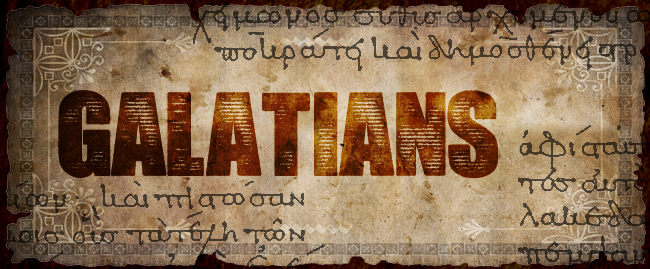Tonight we will be reading through Galatians 4:12-31. In preparation for tonight, please read through the story of Sarah/Isaac and Hagar/Ismael found Genesis 16:1-15, 18:1-15, 21:1-21, and 25:7-26. (If you don’t read the story, please come anyway.) Paul explicitly uses this story allegorically to show that God’s people are those born of a promise (Isaac/Gentile converts), not those born of the body and descended by blood (Ishmael/Jews). Paul expands on this allegory in v.27 by quoting Isaiah 54:1:
Sing, O barren one, who did not bear;
break forth into singing and cry aloud,
you who have not been in travail!
For the children of the desolate one will be more
than the children of her that is married, says the Lord.
In the immediate context of Isaiah, the verse compares the barren women (Jerusalem during the Exile in Babylon) with the married woman (Jerusalem prior to the Exile) to show that upon their return, Jerusalem would be more fruitful and joyful than before. In Paul’s usage of this verse, Sarah and the Gentile Christians are the barren woman and the desolate one who gives birth to the new, heavenly Jerusalem. In quoting this verse, Paul is not simply pulling a passage wholly out of context to prove his point, rather, it is Deutero-Isaiah himself who makes the connection between Sarah (desolate and barren) and the newly restored Jerusalem. In Isaiah 52:1-6, the prophet is speaking to a people in Exile and tells them to look back to Abraham and Sarah (this is the only mention of Sarah outside of Genesis) and the blessing God bestowed upon them, so that his audience in Exile can look forward to a restoration in the new restored Jerusalem. Just as God gave Sarah children as promised, so also will God give the exiles new birth as promised. Therefore, Paul is simply continuing with the analogy first laid down in Isaiah that Sarah is the “barren one” and Paul merely expands the analogy to the Gentile Church.
Dinner is at 6. The menu is chicken salad croissants. Discussion about 6:45. Hope to see you here. Please bring a friend.
He is the Lord our God; *
Psalm 105:7-11
his judgments prevail in all the world.
He has always been mindful of his covenant, *
the promise he made for a thousand generations:
The covenant he made with Abraham, *
the oath that he swore to Isaac,
Which he established as a statute for Jacob, *
an everlasting covenant for Israel,
Saying, “To you will I give the land of Canaan *
to be your allotted inheritance.”

